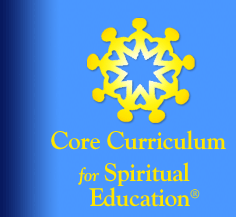Principles of Spiritual Education
Principles of Spiritual Education
Principles of Spiritual Education
The principles of Bahá’í education are explained in the writings of Bahá’u’lláh, ‘Abdu’l-Bahá, Shoghi Effendi, and the Universal House of Justice. The Bahá’í writings compiled in the book, Foundations for a Spiritual Education, outline the purpose, process, content, outcomes, and organizational principles for a spiritual education curriculum open to all.
“The Prophets and Messengers of God have been sent down for the sole purpose of guiding mankind to the straight Path of Truth. The purpose underlying Their revelation hath been to educate all men, that they may, at the hour of death, ascend, in the utmost purity and sanctity and with absolute detachment, to the throne of the Most High.”
— Bahá’u’lláh, Gleanings from the Writings of Bahá’u’lláh, pp. 156–157
Among the greatest objectives of humanity is the education and training of children. This education ensures human progress, and prepares each soul for its entry into the next level of existence. Education must therefore be divine as well as material. Spiritual education embodies those virtues or attributes which, when enkindled in the hearts and minds of children, not only guide their morals, but also enhance their material education.
The Bahá’í writings state that, before all else, children must be taught to love and obey God. This love and obedience is represented to a great extent in children’s relationship with their parents and in service to humankind. Children must learn their rightful role within their own immediate families, their role in their communities, and in the family of humanity, regardless of race, sex, nationality, or socio-economic condition.

“If . . . the child be trained to be both learned and good, the result is light upon light.”
— ‘Abdu’l-Bahá, Selections from the Writings of ‘Abdu’l-Bahá, p. 136
The purpose of spiritual education is to teach children to have high aims toward which they steadfastly progress.
topOpen to All
Education is universal, and all children must be educated. Further, all children are to receive a spiritual education, regardless of their capacity, interest, economic status, or any other factor.

Core Curriculum supports the spiritual empowerment of children from all backgrounds, using the writings and principes of the Bahá’í Faith as the primary source of inspiration. The curriculum is designed to serve all children, those who are new to the teachings of the Bahá’í Faith and those already familiar with its principles.
Additionally, no difference should be made in the education of boys and girls. Yet the Bahá’í writings also state that if a parent can, for whatever reason, only provide education for some children, girls should be given priority because of their role as the mothers of the next generation. ‘Abdu’l-Bahá spoke of this precedence and also stated that:
“the question of training the children . . . is extremely important, but most important of all is the education of girl children, for these girls will one day be mothers, and the mother is the first teacher of the child. In whatever way she reareth the child, so will the child become, and the results of that first training will remain with the individual throughout his entire life, and it would be most difficult to alter them. And how can a mother, herself ignorant and untrained, educate her child? It is therefore clear that the education of girls is of far greater consequence than that of boys.”
— Bahá’u’lláh, Bahá’í Education, p. 37, no. 91


